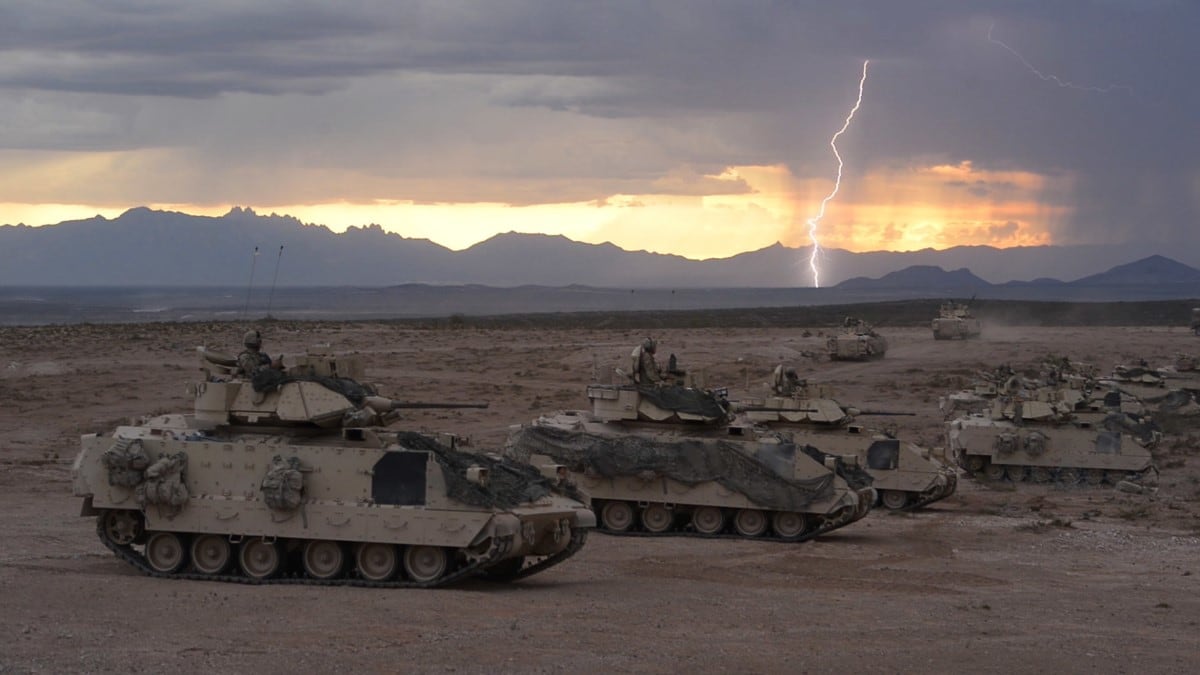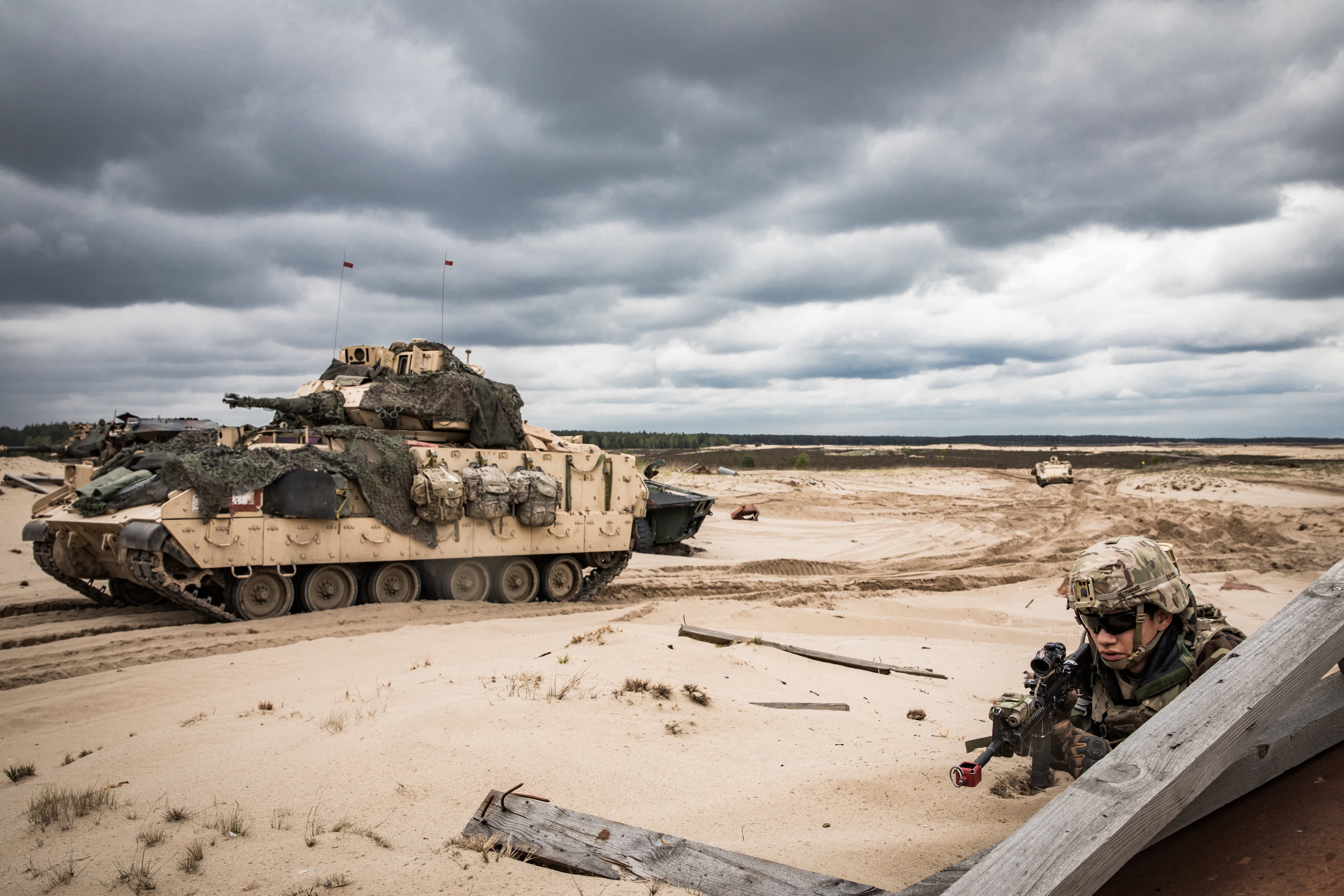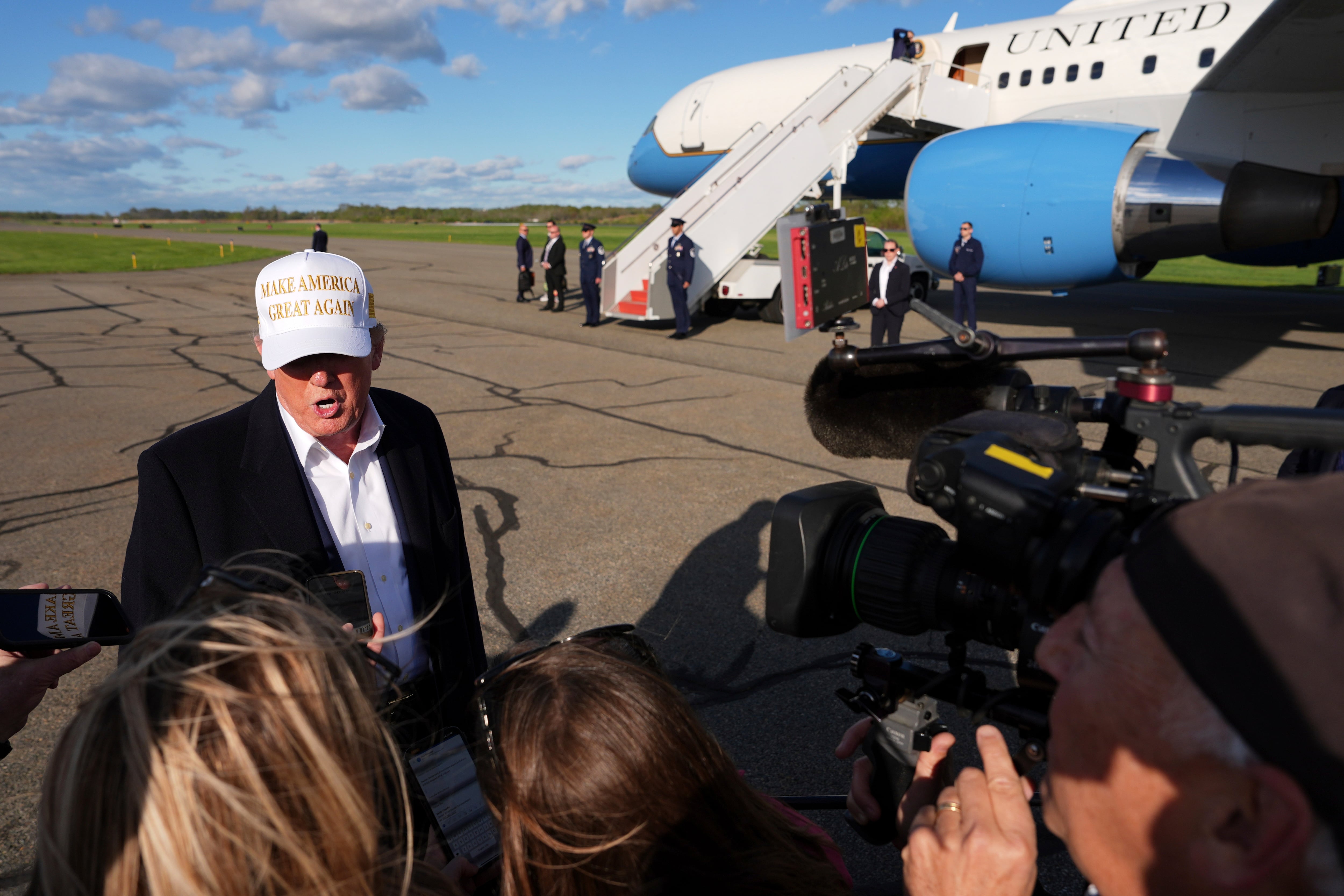There are no major incoming changes to the force expected despite the leadership shift that the Army is undergoing, according to the service’s new top official.
Secretary of the Army Mark Esper was tapped by the president last week to replace Patrick Shanahan as the acting secretary of defense. Additionally, the Army chief of staff and the sergeant major of the Army are being replaced this summer in scheduled changes.
But the leadership shakeup won’t change the trajectory of the service, according to Acting Secretary of the Army Ryan McCarthy, who replaced Esper. President Donald Trump has announced his intention to nominate Esper and McCarthy to permanent positions.
“As a family, we have really circled the wagons and buckled down,” McCarthy told reporters at the Pentagon on Tuesday. “No policies or priorities are changing. We’re going to continue our head down and continue to march the same azimuth we’ve been on while we work through this transition.”
The big ticket item on McCarthy’s agenda in his new role is wading through the defense budget process.
“Our interactions with Congress will be very important between now and the August recess, and then we all kind of go on a tactical pause in August here in Washington,” McCarthy said. “People go on vacation, but then we come back into the next fiscal year.”
The budget will be key to keeping up with the Army’s expensive modernization initiatives, which include building out long-range fires and getting soldiers new combat gear.
And while past budgets under the Trump administration have “stopped the bleeding," Army leaders have said they’ll need solid funding to continue modernizing.
“We want to make sure we get through this process with the best mark that we can get from the Congress so we can continue to build on the gains that have been made,” McCarthy said.
“We have to keep our foot on the gas with modernization [to] bring more innovative capabilities into the formations so we can have the stand-off with long-range fires,” he added. "So, longer ‘legs’ on our aviation platforms with sophisticated avionics, packages with electronic warfare and cyber capabilities, coupled with advancements for soldier lethality like our Integrated Visual Augmentation System.”
RELATED

The Army’s recruitment, modernization and readiness goals top the docket for McCarthy as he heads into the acting service secretary role.
In a message to the force, Esper reiterated, “The bottom line is that the business of the Army continues as normal, and our focus on readiness, modernization and reform remains steadfast. All current policies and procedures remain in effect.”
One current mission the Army has been helping with is providing logistics, medical support and aviation assets to the southern border, as well as fielding a small component of soldiers to assist with border monitoring using instruments like FLIR imaging.
“We’re trying to work more closely at the enterprise level with [Department of Homeland Security] to get better visibility and forecasting for the type of capabilities they need in support of this mission," McCarthy said, before adding that the Army’s support on the border is part of a range of efforts that metrics show decrease illegal border crossings.

The Army has also been tapped recently to allocate soldiers and Patriot missile batteries to the Middle East during a time of heightened tensions with Iran. But there have been no more requests for additional troops, McCarthy said.
The Army’s general counsel, Jim McPherson, is also taking over some of McCarthy’s old responsibilities as undersecretary of the Army.
“There’s all this dual-hatted going on," McPherson said, noting that he retains his general counsel duties. “My job as the principle duty ... is to assist Sec. McCarthy in continuing on with our efforts with modernization reform.
“The major tenets that have been set up by the leadership team — by Sec. Esper, McCarthy, Gen. Milley and Gen. McConville — my job will be to continue to assist them.”
Outgoing Army Chief of Staff Gen. Mark Milley is being replaced by his vice chief, Gen. James McConville, this summer.
McConville’s ascension will keep the current modernization strategy on pace, McCarthy noted. All new leaders rising up “have either been close to it” or have been “directly hands on” with the modernization policies already underway, he said.
“So, the transitions won’t be as steep of a challenge as it would be if you were coming from a different part of the Army,” McCarthy said.
Kyle Rempfer was an editor and reporter who has covered combat operations, criminal cases, foreign military assistance and training accidents. Before entering journalism, Kyle served in U.S. Air Force Special Tactics and deployed in 2014 to Paktika Province, Afghanistan, and Baghdad, Iraq.





